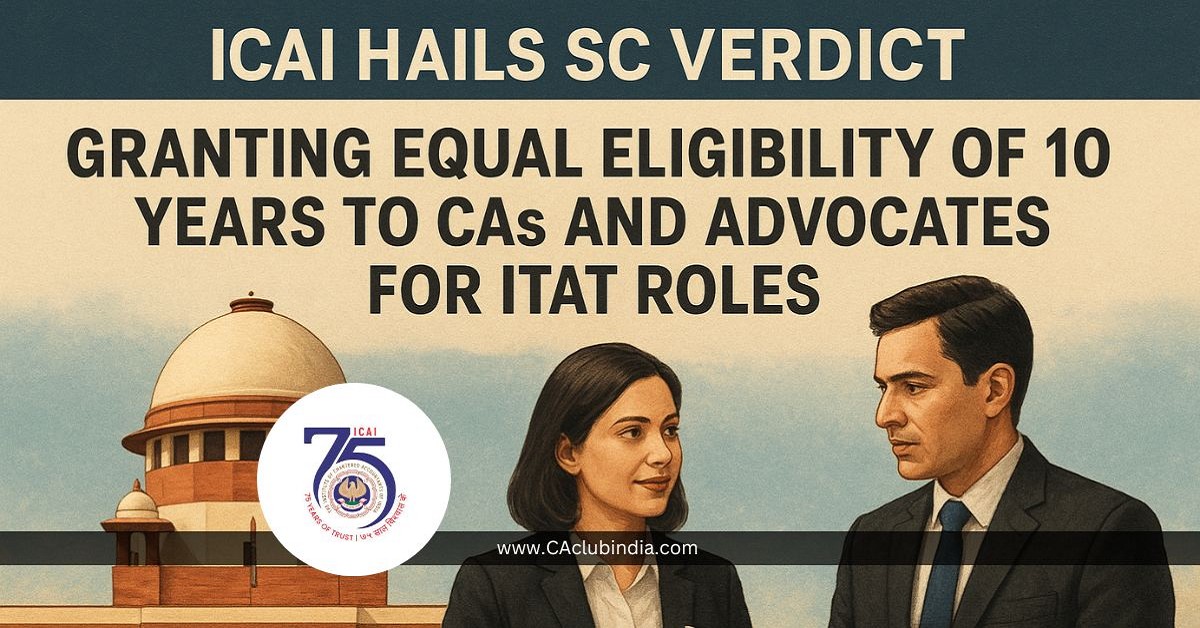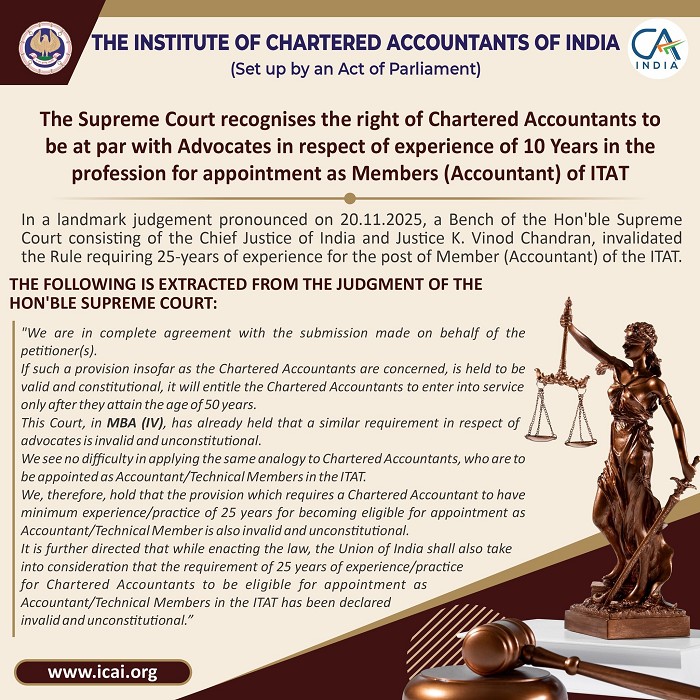The Supreme Court of India, in a significant victory for the Chartered Accountancy profession, has struck down the requirement of 25 years of professional experience for Chartered Accountants seeking appointment as Accountant Members of the Income Tax Appellate Tribunal (ITAT).
The landmark judgment, delivered on 20 November 2025 by a Bench comprising the Chief Justice of India and Justice K. Vinod Chandran, places Chartered Accountants on par with Advocates by recognising 10 years of professional experience as sufficient eligibility for the post.

Rule Mandating 25 Years of Experience Declared Unconstitutional
The Supreme Court invalidated the existing rule that required Chartered Accountants to complete 25 years of practice before being considered for the Accountant Member position. The Court noted that such an excessive requirement was unreasonable and discriminatory, especially since Advocates with 10 years of experience were already eligible.

Quoting from the judgment, the Court observed:
- The requirement would force many Chartered Accountants to enter service only after the age of 50, making the rule impractical.
- A similar rule for Advocates was previously declared unconstitutional in MBA (IV).
- Applying the same principle, the 25-year practice mandate for Chartered Accountants is also invalid and unconstitutional.
The Bench further directed the Union Government to ensure that future legislation aligns with this ruling and does not reinstate a similar restrictive condition.
A Major Boost for the Chartered Accountancy Profession
This ruling marks a crucial step toward ensuring equal professional opportunities for Chartered Accountants in quasi-judicial roles. By recognising the parity of experience between Advocates and CAs, the Supreme Court has opened the door to wider participation of experienced accounting professionals in the ITAT's adjudicatory framework.
The Institute of Chartered Accountants of India (ICAI) welcomed the decision, calling it a milestone that strengthens fairness, transparency, and accessibility in the appointment process.








 CAclubindia
CAclubindia
